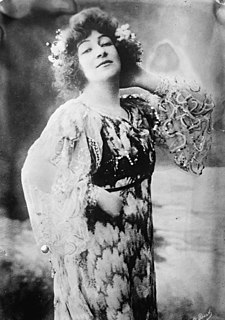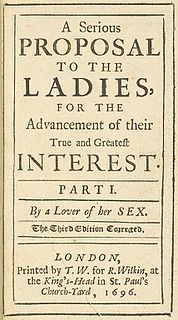A Quote by Francois de La Rochefoucauld
There is a form of eminence which does not depend on fate; it is an air which sets us apart and seems to prtend great things; it is the value which we unconsciously attach to ourselves; it is the quality which wins us deference of others; more than birth, position, or ability, it gives us ascendance.
Related Quotes
It is not merely the brevity by which the haiku isolates a particular group of phenomena from all the rest; nor its suggestiveness, through which it reveals a whole world of experience. It is not only in its remarkable use of the season word, by which it gives us a feeling of a quarter of the year; nor its faint all-pervading humour. Its peculiar quality is its self-effacing, self-annihilative nature, by which it enables us, more than any other form of literature, to grasp the thing-in-itself.
All the wants which disturb human life, which make us uneasy to ourselves, quarrelsome with others, and unthankful to God, which weary us in vain labors and foolish anxieties, which carry us from project to project, from place to place in a poor pursuit of we don't know what, are the wants which neither God, nor nature, nor reason hath subjected us to, but are solely infused into us by pride, envy, ambition, and covetousness.
People need to learn how to respond to each other's hatreds with love - which is what Jesus taught us, which is what Buddha came here to teach us, which is what Muhammad taught us, which is what all of the great spiritual masters who have ever walked among us who live at those highest energies taught us - responding to force with more force will just create more problems.
When I began writing these pages I believed their subject to be children, the ones we have and the ones we wish we had, the ways in which we depend on our children to depend on us, the ways in which we encourage them to remain children, the ways in which they remain more unknown to us than they do to their more casual acquaintances; the ways in which we remain equally opaque to them.
Air travel reminds us who we are. It's the means by which we recognize ourselves as modern. The process removes us from the world and sets us apart from each other. We wander in the ambient noise, checking one more time for the flight coupon, the boarding pass, the visa. The process convinces us that at any moment we may have to submit to the force that is implied in all this, the unknown authority behind it, behind the categories, the languages we don't understand. This vast terminal has been erected to examine souls.
If we feel that any habit or pursuit, harmless in itself, is keeping us from God and sinking us deeper in the things of earth; if we find that things which others can do with impunity are for us the occasion of falling, then abstinence is our only course. Abstinence alone can recover for us the real value of what should have been for our help but which has been an occasion of falling. ... It is necessary that we should steadily resolve to give up anything that comes between ourselves and God.
There are certain things in which one is unable to believe for the simple reason that he never ceases to feel them. Things of this sort - things which are always inside of us and in fact are us and which consequently will not be pushed off or away where we can begin thinking about them - are no longer things; they, and the us which they are, equals A Verb; an IS.
What has the Cross left in each of us? You see, it gives us a treasure that no one else can give: the certainty of the faithful love which God has for us. A love so great that it enters into our sin and forgives it, enters into our suffering and gives us the strength to bear it. It is a love which enters into death to conquer it and save us.
The greatest human virtue bears no proportion to human vanity. We always think ourselves better than we are, and are generally desirous that others should think us still better than we think ourselves. To praise us for actions or dispositions which deserve praise is not to confer a benefit, but to pay a tribute. We have always pretensions to fame which, in our own hearts, we know to be disputable, and which we are desirous to strengthen by a new suffrage; we have always hopes which we suspect to be fallacious, and of which we eagerly snatch at every confirmation.



































